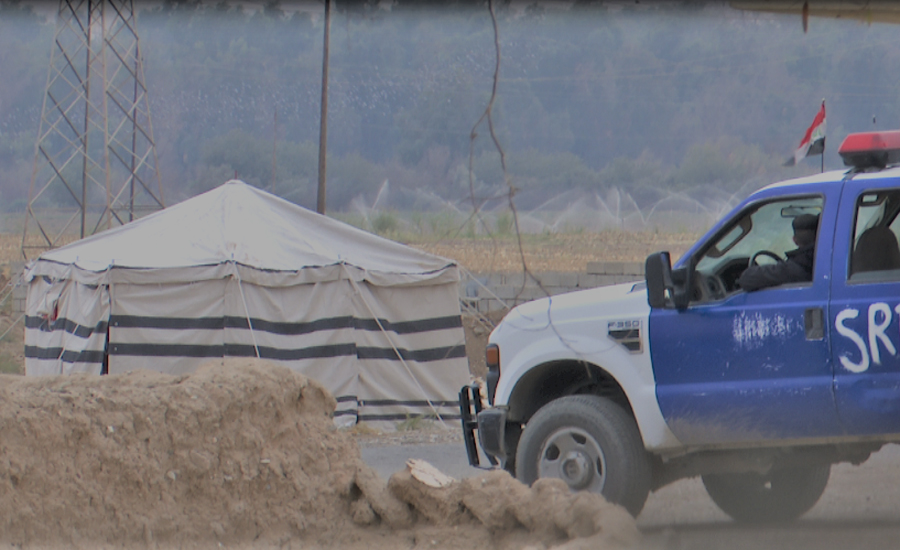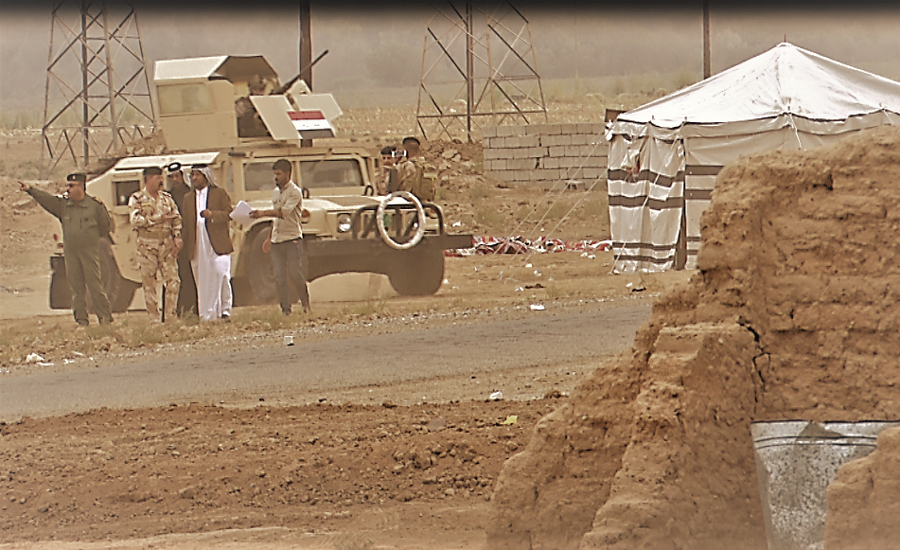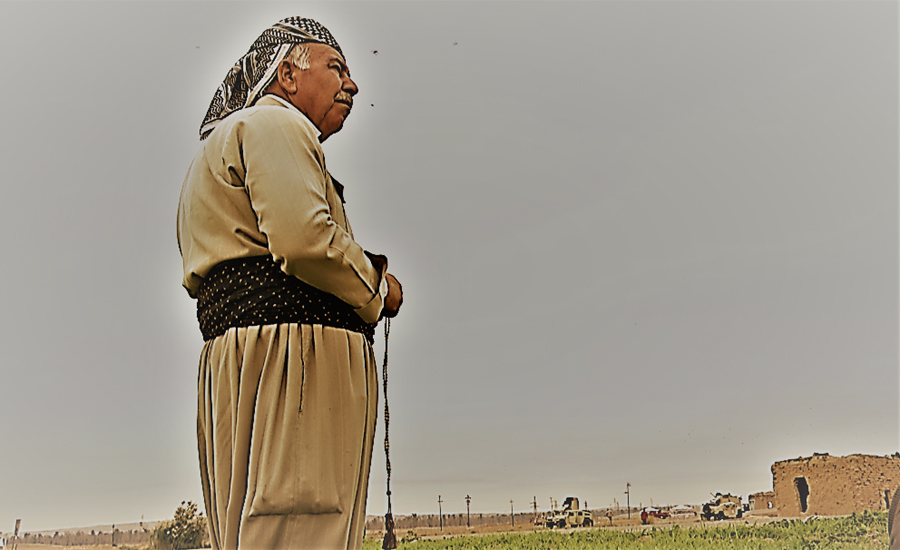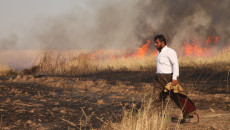Residents of 35 villages of Sargaran sub-district in western Kirkuk are in a complicated situation due to the outstanding problems between Kurd and Arab farmers regarding the ownership of agricultural lands.
The history of this conflict dates back to the period of the rule of the Baath Regime in 1970s while successive parliaments and governments in Iraq post 2003 have failed to find radical solutions.
In the 1970s, the Baath Party, led by Saddam Hussein, distributed most of the agricultural farmlands of Kurdish and Turkmen farmers in several areas of Kirkuk to Arab settlers brought from central and southern Iraq, in the form of agricultural contracts.
These contracts continued until the fall of the Baath regime in 2003. Then, the Kurd and Turkmen real owners returned to their lands and have been cultivating those lands for the last 18 years.
During the past week, a wave of Arabs returnees came back to those lands especially in the Sargaran sub-district, west of Kirkuk, a move that might result in clashes between farmers of different communities.
Pirot Kanabi, a Kurdish farmer who lives in the village of Shanagha within the borders of the Sargaran, said, "The Arab farmers returned after 18 years to claim these agricultural lands. They have contracts of Ba'ath party era and claim they are the owners."
"We, as residents of the village, will not accept the stay of those Arabs here at all. We will defend with whatever strength we have.”
Early last week, a number of Arab farmers entered the village of Shanagha early in the morning and set up tents there, then asked the Kurdish farmers to evacuate the area.
Located 238 kilometers north of Baghdad, the oil-rich city of Kirkuk is an ethnically mixed province for 1.6 million Kurds, Arabs, and Turkmen, Muslims, Christians and Kaka'is. It has long been at the center of disputes between Baghdad and Erbil.

Kirkuk, November 2021: Arab farmers camped in Shanagha village in Sargaran sub-district. KirkukNow
This step sparked anger of the Kurdish farmers and warned of the emergence of clashes, and to stave off the emergence of tension and confrontations, the Joint Operations Command in Kirkuk forced the Arab farmers to remove their tents.
"These people from the provinces of Kut (Wasit) and Diwaniyah, raid our village and want to seize our lands," said Kanabi, who owns a title deed that proves his ownership of his agricultural land.
The return of Arab farmers and their quest to return to the use of agricultural lands in Kirkuk began after the events of October 16, 2017, when the security forces of the Government of Iraq returned to Kirkuk and the rest of the disputed areas. In return, the forces of the Kurdistan Regional Government KRG withdrew from it.
The KRG, with the emergence of ISIS in 2014, and years before that, was imposing its control over the Kirkuk and the disputed territories, especially in terms of security.
"As Kurds, we have no authority and the Kurdish leadership does not care about our problem. We appeal to the KRG and the Baghdad (federal) government to find a radical solution to this problem," Kanabi called on both sides.
We as Kurds do not have power and the Kurdish leadership does not care about our problem
Najim Mam Siwara, a resident of the village of Gabarka of Sargaran complained about the unilateral steps Arabs take.
"They are raiding our lands backed by agricultural contracts dating back to the period of the Baath regime. They want to expel us from the land of our fathers and forefathers," Siwara said
"Our blood was spilled on this land, our people were martyred for the sake of this land but they want to expel us," Siwara sobbed.
The disputed agricultural lands were distributed to the Arabs in the form of contracts per a decision of the Revolutionary Command Council of Ba'th Party, but the problem is that the decisions of that council have legal force and their abolition requires a counter law by the Iraqi parliament.
Dylan Ghafoor, a winning candidate of Patriotic Union of Kurdistan in Kirkuk for the next parliament, said in a previous statement to KirkukNow the decisions of the Revolutionary Command Council of the Baath Party should be canceled in Parliament in order to return these lands to their original owners.
"The issue is undoubtedly legal, but it is also political. For example, in previous sessions, the decisions of the Revolutionary Command Council were included in the parliament's agenda with the aim of voting to cancel them, but it was not passed, because canceling it is not in the interest of some parties," Ghafour said.

Arab farmers have asserted on several occasions through KirkukNow that they own agricultural contracts and claim these lands under the law. They have verdicts in their favor by Kirkuk courts which ruled out claims from both parties.
The continuation of this problem comes at a time when the Iraqi government and parliament have several times formed committees to address this problem and normalize the situation in Kirkuk, but without results.
Shakhwan Abdullah, a member of one of the committees formed in 2020 to normalize the situation in Kirkuk, believes "Kirkuk Agriculture Department is the main culprit in this issue and must put an end to these violations."
The lands must remain with their owners until the disputes are finally resolved
"There is a decision issued by the Iraqi government that stipulates not to renew the contracts of the Arabs settlers. The lands must remain with their owners until the disputes are finally resolved," said Abdullah, the candidate of Kurdistan Democratic Party KDP who won a parliamentary seat from Kirkuk province.
Kirkuk local officials believe they are not part of the issue which should be addressed in Baghdad.
Zuhair Ali, director of the Kirkuk Agriculture Department, a member of the Arab community, told KirkukNow, "The solution to this problem is not in Kirkuk. Only Baghdad can address this problem, either through the supreme courts or the Iraqi parliament."
"The committee that was formed by a decision of the Iraqi parliament to resolve this issue has not accomplished its mission," he added.
The committee was composed of representatives of the three main components of Kirkuk, Kurds, Arabs and Turkmen. This committee has not met since before the parliamentary elections that took place on October 10th.
The members of the committee met several times in Kirkuk and Baghdad "but they did not reach any solutions. In my opinion, the new parliamentary session should handle this issue as soon as possible. We are waiting for a legal solution," Ali said.
Farmers also put all their hope in the Baghdad, Erbil and relevant authorities to sort out the issue and lit light at the end of the tunnel.
"How long do we have to wait? I ask everyone to make efforts to rid people of this suffering," Siwara called on relevant authorities.






